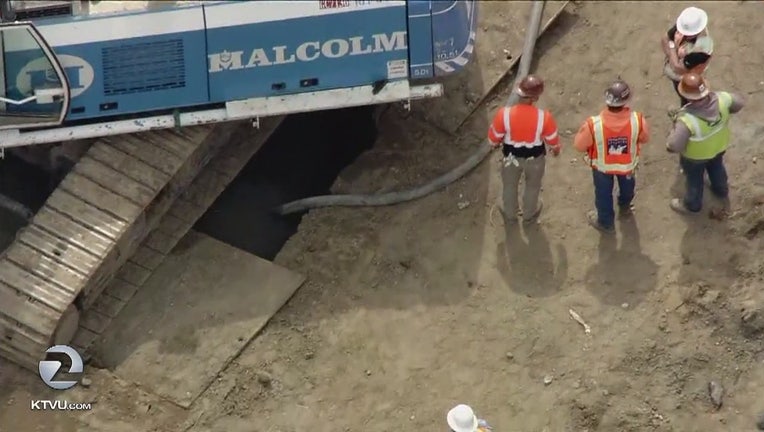Alameda County supe chastises agency over failure to hire Black contractors

OAKLAND, Calif. (BCN) - Alameda County Supervisor Keith Carson at Tuesday's Board of Supervisors meeting chastised the county's General Services Agency for sole-sourcing a project for tiny homes when Black contractors are getting few if any projects from the agency.
When the county does something wrong, he said, "I'm going to call it out."
Carson said people call him every day about the lack of contracts for Black contractors and the lack of work for them has been going on for years.
"There has not been any change," Carson said.
His comments came before the approval of the tiny homes project at 2055 Fairmont Drive in unincorporated San Leandro. It was deemed an emergency project, which appears to be the reason for sole-sourcing it.
According to county records, the contractor is CoBuild Construction Services, based in Castro Valley, and the cost is $6.4 million.
Board President Richard Valle agreed with Carson's assessment. The board approved the project unanimously, but Carson said he recommended approval only because he is concerned about the lives of homeless people amid the COVID-19 pandemic.
The Fairmont Safer Ground Tiny Homes Project will create one home for each of 34 individuals, including 10 units that are compliant with the Americans with Disabilities Act. Operating the site is expected to cost $1.4 million a year.
The project is expected to start immediately, said Alan Baxter, chief deputy of operations with the county GSA. An office, laundry room and six ADA units are expected to be completed in December. The rest are expected to be finished in the first quarter of 2021, Baxter said.
Supervisors on Tuesday also approved a program to provide money for residents with COVID-19 so they can quarantine at home. The pilot program provides a one-time payment of $1,250 so residents can quarantine for two weeks.
The stipend amounts to about $15.63 per hour for 80 hours of time they could have worked if they did not have the coronavirus. To be eligible, residents must not be receiving unemployment benefits or paid sick leave and be referred by clinics in five high-risk neighborhoods.
The project aims to help up to 7,500 individuals. Up to $10 million was authorized for the project.
Also, approved was up to $27.6 million for emergency food distribution and meal delivery services for vulnerable county residents in the pandemic.
Some community groups are already providing food and related services in their neighborhoods and the money will help them keep doing what they're doing, according to county officials.
Requesting food is based solely on need and is open to anyone who applies.

